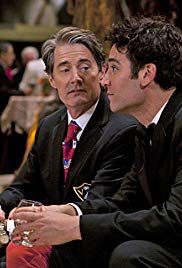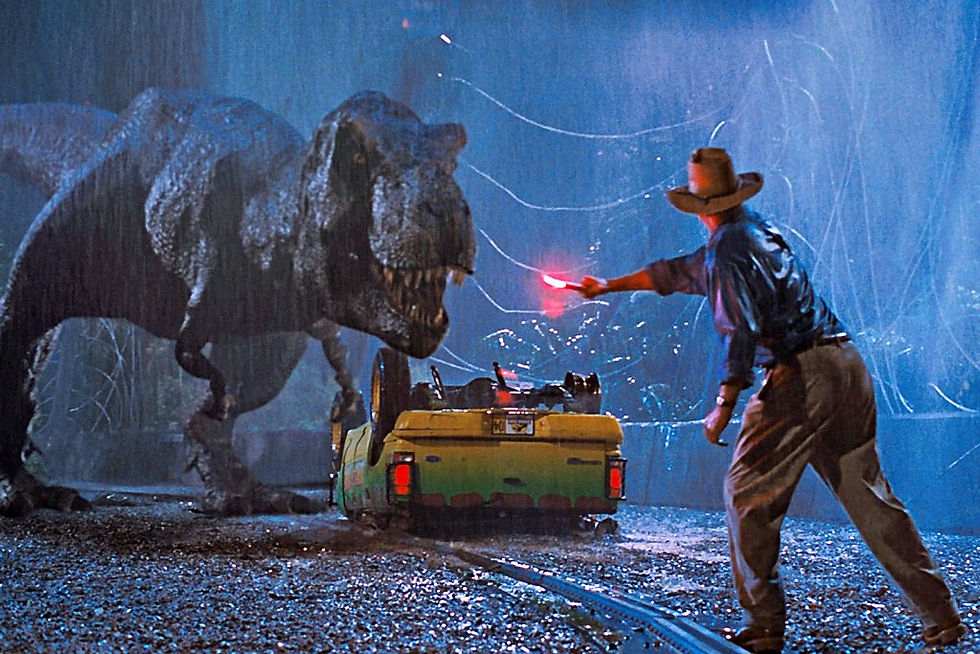How We Failed Our Audience, or: The 'Art' of Poor Storytelling, Part 2
- iw2write@gmail.com
- Jun 5, 2019
- 3 min read
An audience is an audience, whether it's a movie audience, TV audience or targeted advertising audience. One important thing they share, is this: they do not like to be left feeling stupid, their intelligent insulted, being condescended to, etc. Therefore, a story without a proper resolution, or illogical twist, or a promotion that doesn't make sense or fails at the point of sale, will boomerang, with a flurry of negative social reactions as a "bonus."

Exhibit A: How I Met Your Mother
This TV comedy, successful in most parts, ran for an astounding 9 seasons. Like most shows, it had its highs and lows, but essentially, it was a creative, entertaining, funny comedy with an original premise: how the main character would meet the mother of their children. So, you would expect that by the end of the run, the main character, Ted, would meet said mother and all's well that ends well, right? not so fast! there were plenty of twists and turns in that series, but you all knew they were 'false' twists, or endings. In one of the major twists of the show, Barney (Neil Patrick Harris) is set to marry....the preparations for their wedding lasts an entire season. At the end of which...they break off and get divorced (in a span of one show), the main character's supposed "mother" caught a terminal illness and died (very cheerful for a comedy), so he, Ted, could end up with...who he wanted to begin with! To wrap up: for nine seasons we had chasing the girl(s) of his dreams, just to meet someone, she dies, he ends up with his first love, Robin. I'm sorry, that's not creative writing - it's lazy writing, and in
"Cheers" is a prime example how to end a comedy series properly, on a high note. "Seinfeld" is another (although bizarrely, but that's Seinfeld). We can go all the way back to the days of "Three's Company" (if you know what that is), to see how to properly end a show. But, to set up a premise, let it run, and run, and run...and then pull it from under the audiences' feet? that's not the right way to do it. "Wiseguy" is an example of a great show that was simply allowed to have its wheels fall without a satisfactory ending.
Exhibit B: Lost
The problem with a show like "Lost" is that, after the initial success, you run out of ideas and twists. Characters "do well" with the audience, so they're kept alive, instead of the original intent. "Prison Break" suffered from a similar fate: started off with a band, then limped to the end . However, anytime you run a show for several seasons, just to end it by revealing that everyone was dead to begin with, is not only a big-time cop-out, its a massive disappointment to those who followed the show for so long. Imagine Sex & The City, for example, ending with Carrie Bradshaw moving to Queens after Mr. Big decides to leave her to become a scuba diving instructor?
Exhibit C: Jurassic World
"Life...finds a way" and, unfortunately, poor concepts find a way to get approved by studios eager to cash in on past success (*cough * Disney * cough*)
Jurassic Park had a number of factors contributing to making it an amazing spectacle: fantastic-looking dinosaurs; a fine cast; a witty script (based on the novel by Michael Crichton), the now-legendary music of John Williams, and of course, Steven Spielberg behind the camera.
Now, there is the saying "going to the well once to often." In the case of Jurassic World (and its sequel, Fallen Kingdom) this holds true in a number of ways. There's not even a drop of water left in the well. They bring in a "venerable, wise old man" named Lockwood (James Cromwell) who was supposed to be John Hammond's partner. And something about the two of them doing it "for the animals." Is that the best they could do? Hammond (in the book more so than the movie) was more concerned about profit, and he was not that different than the main villains in this movie.

Writers/producers claim that life isn't all sunshine and rainbows, and they're right. But they're wrong in taking their story off the rails, deliberately and unnaturally, just to prove this point. And you know what? sometimes life is sunshine and rainbows. It's not always I love Lucy or Happy Days, but's it's also not The Walking Dead.
I know a thing or two about starting a story without having a definite conclusion in place, right from the start. There's nothing wrong with that - as long as you can formulate a conclusion that fits logically into the actions and matches the personalities of the characters.







Comments